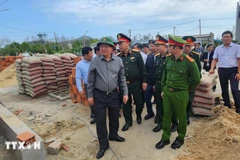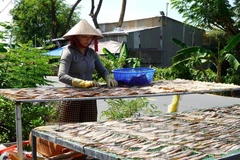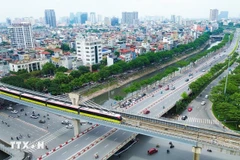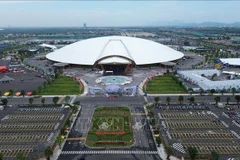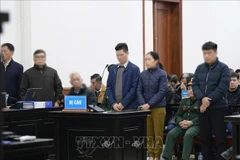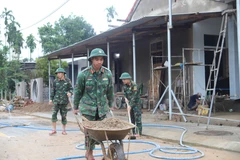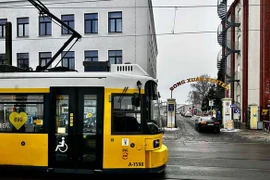After a rapid increase in Vietnam's pepper cultivation, the area has reached 80,000 hectares.
According to the Vietnam Pepper Association, the price of domesticpepper has increased continuously since 2007. It cost 150,000 VND (6.9USD) per kg in early January, and jumped to 175,000 VND (8.1 USD) by theend of the first quarter of this year. The price of exporting blackpepper was nearly 8,800 USD per tonne, an increase of 35 percentcompared with the same period last year.
The pricehike has encouraged farmers to swap their farms for pepper or increasetheir yield, regardless of whether their land can support it or not.
Hoang Phuoc Binh, Vice Chairman of the Chu Se Pepper Association, saidthe pepper supply would increase by hundreds of thousands of tonnes ifthe cultivation area keeps increasing at a similar pace. He said theplanting is being rushed.
Nguyen Van Cuong, a farmerin Cu M'Gar District's Ea Kpam Commune said he hired five people tochop down rubber trees – rubber was quite cheap and if pepper pricesremained stable, it would be worth the investment. The land would beused for pepper plantations, and about 500 rubber trees would be used aspillars to help the pepper grow.
Dao Xuan Vinh, afarmer in Buon Ho Town's Thong Nhat Ward, said he switched two hectaresof rubber over to pepper with the hope of making billions of dong in thenext few years.
Trinh Tien Bo, head of theprovincial Department of Agriculture and Rural Development's cultivationunit, said pepper has been planted over 16,000ha, exceeding the goalfor 2020 by 1,000ha. The unit estimated that 2,000 more hectares wouldbe planted by the end of the year.
Bo said thebiggest concerns are the crops' quality and productivity. The pepper is asensitive tree that would die en masse without proper cultivation.
The Vietnam Pepper Association has asked the Ministry ofAgriculture and Rural Development to require local agriculturalauthorities to help farmers plant the crops correctly and avoidfertiliser abuse to assure productivity.-VNA
